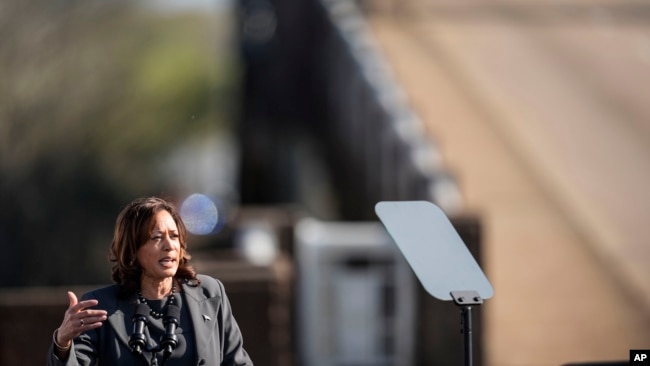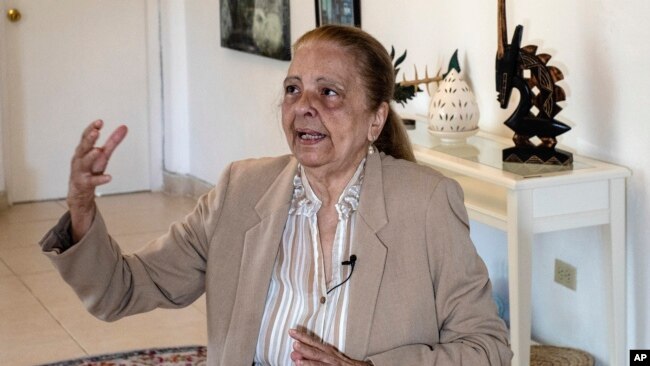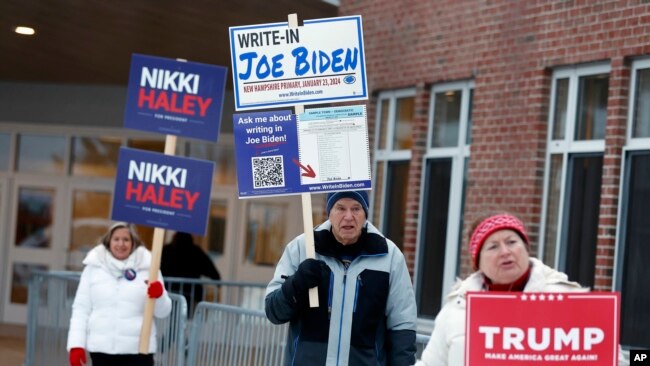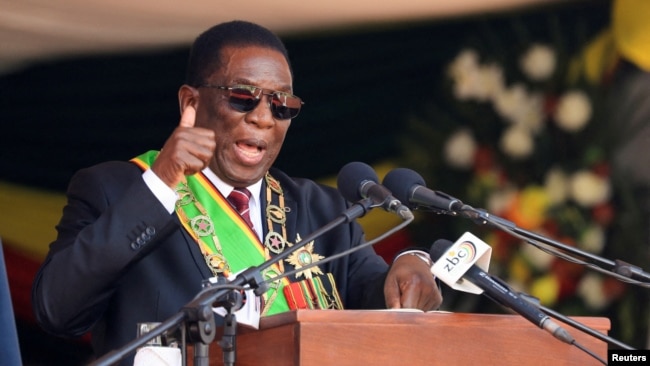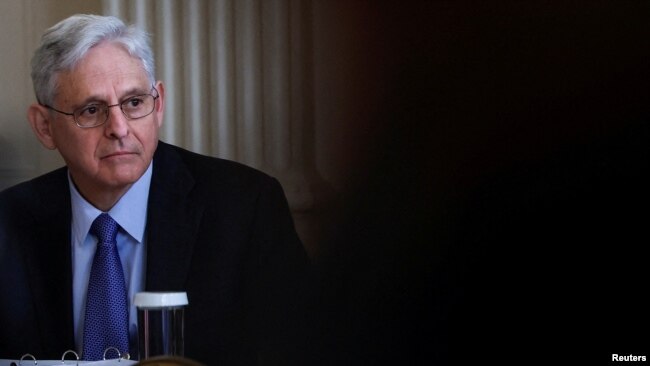치솟는 인플레이션, 급락하는 통화와 씨름하는 나이지리아
Nigeria Grapples with Soaring Inflation, Plummeting Currency
페이지 정보
작성자 By Associated Press 작성일 24-02-17 21:39 댓글 0본문
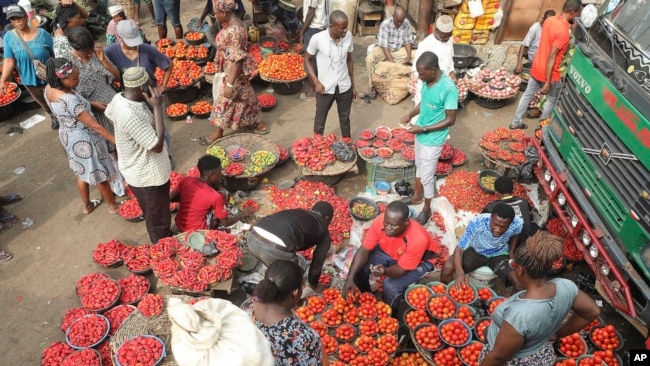
2월 나이지리아 라고스의 마일 12 마켓에서 보행자들이 쇼핑을 합니다
Pedestrians shop at the Mile 12 Market in Lagos, Nigeria, Feb. 16, 2024.
아부자, 나이지리아 -
ABUJA, Nigeria —
나이지리아 사람들은 달러 대비 통화를 사상 최저치로 밀어 넣은 통화 정책의 결과로 치솟는 인플레이션에 의해 촉발된 서아프리카 국가의 수년 중 최악의 경제 위기에 직면해 있습니다. 이 상황은 전국적으로 분노와 시위를 유발했습니다.
Nigerians are facing one of the West African nation's worst economic crises in years triggered by surging inflation, the result of monetary policies that have pushed the currency to an all-time low against the dollar. The situation has provoked anger and protests across the country.
목요일 발표된 최근 정부 통계에 따르면, 1월 물가 상승률은 29.9%로, 주로 음식과 비알코올 음료를 중심으로 1996년 이후 최고치를 기록했습니다. 나이지리아의 통화인 나이라는 금요일 1,524달러에서 1달러로 더 폭락했는데, 이는 지난 해 230%의 가치 하락을 반영한 것입니다.
The latest government statistics released Thursday showed the inflation rate in January rose to 29.9%, its highest since 1996, mainly driven by food and non-alcoholic beverages. Nigeria's currency, the naira, further plummeted to 1,524 to $1 on Friday, reflecting a 230% loss of value in the last year.
나이지리아의 수도 아부자에 있는 한 의류 매장의 매출이 하루 평균 46달러에서 16달러로 감소한 무역업자 이드리스 아흐메드는 "우리 가족은 이제 한 번에 (그리고) 하나님을 믿으며 살고 있습니다"라고 말했습니다.
"My family is now living one day at a time (and) trusting God," said trader Idris Ahmed, whose sales at a clothing store in Nigeria's capital of Abuja have declined from an average of $46 daily to $16.
폭락하는 통화는 가뜩이나 나쁜 상황을 악화시켜 소득과 저축을 더욱 잠식합니다. 그것은 가스 가격을 세 배로 끌어올린 가스 보조금의 철폐를 포함한 정부 개혁으로 인해 이미 어려움을 겪고 있는 수백만 나이지리아 사람들을 압박합니다.
The plummeting currency worsens an already bad situation, further eroding incomes and savings. It squeezes millions of Nigerians already struggling with hardship due to government reforms including the removal of gas subsidies that resulted in gas prices tripling.
나이지리아 경제 현황
A snapshot of Nigeria's economy
2억 1천만 명 이상의 인구를 가진 나이지리아는 아프리카에서 가장 인구가 많은 나라일 뿐만 아니라 대륙에서 가장 큰 경제입니다. 국내총생산은 주로 정보 기술과 은행업과 같은 서비스에 의해 주도되고 제조업과 가공업 그리고 농업이 그 뒤를 이습니다.
With a population of more than 210 million people, Nigeria is not just Africa's most populous country but also the continent's largest economy. Its gross domestic product is driven mainly by services such as information technology and banking, followed by manufacturing and processing businesses and then agriculture.
문제는 자동차에서 식기에 이르기까지 나이지리아 시민들의 일상적인 필요를 충족시키기 위해 수입에 크게 의존하는 나이지리아의 호황 인구에 경제가 턱없이 부족하다는 것입니다. 그래서 상품과 서비스의 가격을 결정하는 병행 외환 시장과 같은 외부 충격에 쉽게 영향을 받습니다.
The challenge is that the economy is far from sufficient for Nigeria's booming population, relying heavily on imports to meet the daily needs of its citizens from cars to cutlery. So it is easily affected by external shocks such as the parallel foreign exchange market that determines the price of goods and services.
나이지리아의 경제는 최대 외환 수입국인 원유에 크게 의존하고 있습니다. 2014년 원유 가격이 폭락했을 때, 당국은 부족한 외환 보유고를 여러 차례의 환율 속에서 나이라를 안정화시키기 위해 사용했습니다. 정부는 또한 현지 생산과 특정 품목의 수입업자들의 달러 접근 제한을 장려하기 위해 국경을 폐쇄했습니다.
Nigeria's economy is heavily dependent on crude oil, its largest foreign exchange earner. When crude prices plunged in 2014, authorities used its scarce foreign reserves to try to stabilize the naira amid multiple exchange rates. The government also shut down the land borders to encourage local production and limited access to the dollar for importers of certain items.
그러나 그 조치는 달러에 대한 병행 시장의 호황을 촉진함으로써 나이라를 더욱 불안정하게 만들었습니다. 만성적인 도난과 파이프라인 파손 행위로 인해 외환 수익을 높이는 원유 판매도 감소했습니다.
The measures, however, further destabilized the naira by facilitating a booming parallel market for the dollar. Crude oil sales that boost foreign exchange earnings have also dropped because of chronic theft and pipeline vandalism.
통화개혁 부실 이행
Monetary reforms poorly implemented
작년 5월 권력을 장악한 직후, 볼라 티누부 대통령은 병든 경제를 바로잡고 투자자들을 끌어들이기 위해 대담한 조치를 취했습니다. 그는 정부가 더 이상 지속 가능하지 않다고 말한 값비싼 수십 년 동안의 가스 보조금의 종료를 발표했습니다. 한편, 그 나라의 여러 환율은 시장 세력이 달러에 대한 현지 나이라의 비율을 결정할 수 있도록 통합되었고, 사실상 통화 가치를 평가절하했습니다.
Shortly after taking the reins of power in May last year, President Bola Tinubu took bold steps to fix the ailing economy and attract investors. He announced the end of costly decadeslong gas subsidies, which the government said were no longer sustainable. Meanwhile, the country's multiple exchange rates were unified to allow market forces to determine the rate of the local naira against the dollar, which in effect devalued the currency.
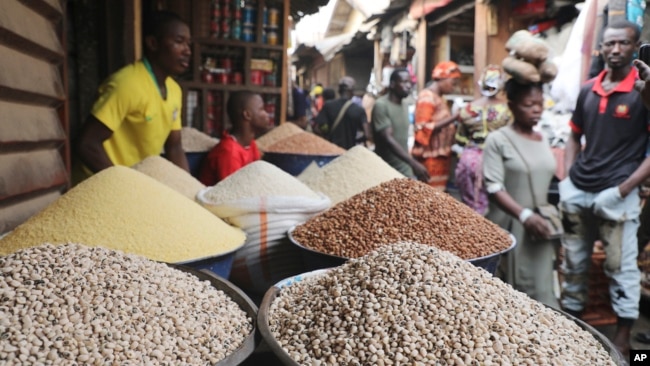
2월 나이지리아 라고스의 마일 12 마켓에서 보행자들이 물건을 쇼핑합니다
Pedestrians shop for items at the Mile 12 Market in Lagos, Nigeria, Feb. 16, 2024.
보조금이 지급된 교통수단 제공과 즉각적인 임금 인상 등 개혁의 결과로 올 수밖에 없는 충격을 억제할 수 있는 적절한 조치가 없었다는 분석입니다.
Analysts say there were no adequate measures to contain the shocks that were bound to come as a result of reforms including the provision of a subsidized transportation system and an immediate increase in wages.
그래서 가스 보조금 지급이 종료되면서 발생한 가스 가격의 200% 이상 상승은 다른 모든 것에 연쇄적인 영향을 미치기 시작했습니다. 특히 지역 주민들이 가정에 불을 붙이고 사업을 운영하기 위해 가스 동력 발전기에 크게 의존하기 때문입니다.
So the more than 200% increase in gas prices caused by the end of the gas subsidy started to have a knock-on effect on everything else, especially because locals rely heavily on gas-powered generators to light their households and run their businesses.
나이라의 가치가 급락하는 이유는 무엇입니까?
Why is the naira plummeting in value?
나이지리아 중앙은행의 이전 지도 아래, 정책 입안자들은 달러에 대한 나이라의 비율을 엄격하게 통제했고, 그래서 달러가 필요한 개인과 기업들은 통화가 훨씬 더 낮은 비율로 거래되는 암시장으로 향해야 했습니다.
Under the previous leadership of the Central Bank of Nigeria, policymakers tightly controlled the rate of the naira against the dollar, thereby forcing individuals and businesses in need of dollars to head to the black market, where the currency was trading at a much lower rate.
또한 나이지리아에 대한 외국인 투자와 나이지리아의 원유 판매가 감소함에 따라 부분적으로 달러 흐름이 제한되었기 때문에 공식 시장에서 70억 달러로 추정되는 막대한 외환 수요가 있었습니다.
There was also a huge backlog of accumulated foreign exchange demand on the official market — estimated to be $7 billion — due in part to limited dollar flows as foreign investments into Nigeria and the country's sale of crude oil have declined.
당국은 통일된 환율이 달러에 대한 접근성을 용이하게 함으로써 외국인 투자자들을 격려하고 나이라를 안정시킬 것이라고 말했습니다. 그러나 유입이 저조했기 때문에 그것은 아직 일어나지 않았습니다. 대신, 나이라는 달러 대비 가치가 계속 하락함에 따라 더 약세를 보였습니다.
Authorities said a unified exchange rate would mean easier access to the dollar, thereby encouraging foreign investors and stabilizing the naira. But that has yet to happen because inflows have been poor. Instead, the naira has further weakened as it continues to depreciate against the dollar.
당국은 무엇을 하고 있습니까?
What are authorities doing?
올라예미 카르도소 나이지리아 중앙은행 총재는 은행이 미결제 상태였던 70억 달러 중 25억 달러의 외환 잔고를 정리했다고 밝혔습니다. 그러나 은행은 그 잔고 중 24억 달러가 정리되지 않을 것이라는 거짓 주장임을 발견했다고 카르도소 총재는 말했고, 22억 달러 정도의 잔고가 "곧 정리될 것"이라고 말했습니다
Central Bank of Nigeria Gov. Olayemi Cardoso has said the bank has cleared $2.5 billion of the foreign exchange backlog out of the $7 billion that had been outstanding. The bank, however, found that $2.4 billion of that backlog were false claims that it would not clear, Cardoso said, leaving a balance of about $2.2 billion, which he said will be cleared "soon."
한편, 티누부는 어려움의 영향을 완화하기 위해 정부 비축품 중 곡물과 같은 식품의 방출을 지시했습니다. 정부는 또한 치솟는 상품 및 서비스 가격을 규제하기 위해 상품 위원회를 설립할 계획이라고 밝혔습니다.
Tinubu, meanwhile, has directed the release of food items such as cereals from government reserves among other palliatives to help cushion the effect of the hardship. The government has also said it plans to set up a commodity board to help regulate the soaring prices of goods and services.
목요일, 나이지리아 지도자는 주지사들과 만나 경제 위기에 대해 논의했는데, 그 중 일부는 일부 창고의 대규모 식량 사재기 때문이라고 비난했습니다.
On Thursday, the Nigerian leader met with state governors to deliberate on the economic crisis, part of which he blamed on the large-scale hoarding of food in some warehouses.
티누부 장관은 "투기꾼, 사재기업자, 임대료 요구자들이 모든 나이지리아인들에게 식량을 폭넓게 공급할 수 있도록 우리의 노력을 방해하지 않도록 해야 한다"고 말했습니다.
"We must ensure that speculators, hoarders and rent seekers are not allowed to sabotage our efforts in ensuring the wide availability of food to all Nigerians," Tinubu said.
금요일 아침, 현지 언론들은 상점들이 사재기와 부당한 가격을 청구한 혐의로 봉인되고 있다고 보도했습니다.
By Friday morning, local media were reporting that stores were being sealed for hoarding and charging unfair prices.
나이지리아 사람들은 힘든 시기에 어떻게 대처하고 있습니까?
How are Nigerians coping with tough times?
나이지리아 북부 분쟁 지역에서는 농업 공동체들이 폭력을 피하도록 강요받으면서 더 이상 그들이 먹는 것을 재배할 수 없는 상황이 최악입니다. 지난 몇 주 동안 시위가 발생했지만, 보안군이 신속하게 그들을 방해했고, 심지어 어떤 경우에는 체포되기도 했습니다.
The situation is at its worst in conflict zones in northern Nigeria, where farming communities are no longer able to cultivate what they eat as they are forced to flee violence. Pockets of protests have broken out in past weeks, but security forces have been quick to impede them, even making arrests in some cases.
라고스와 다른 주요 도시들의 경제 중심지에서는 통근자들이 직장으로 트레킹을 해야 하기 때문에 도로에 자동차가 줄어들고 다리가 늘어납니다. 음식에서 가정용품에 이르기까지 모든 것의 가격이 매일 상승합니다.
In the economic hub of Lagos and other major cities, there are fewer cars and more legs on the roads as commuters are forced to trek to work. The prices of everything from food to household items increase daily.
"지금 먹는 것조차 문제입니다," 라고 아부자의 아흐메드가 말했습니다. "하지만 우리가 무엇을 할 수 있겠습니까?"
"Even to eat now is a problem," said Ahmed in Abuja. "But what can we do?"
출처 : VOANews
댓글목록 0
등록된 댓글이 없습니다.


